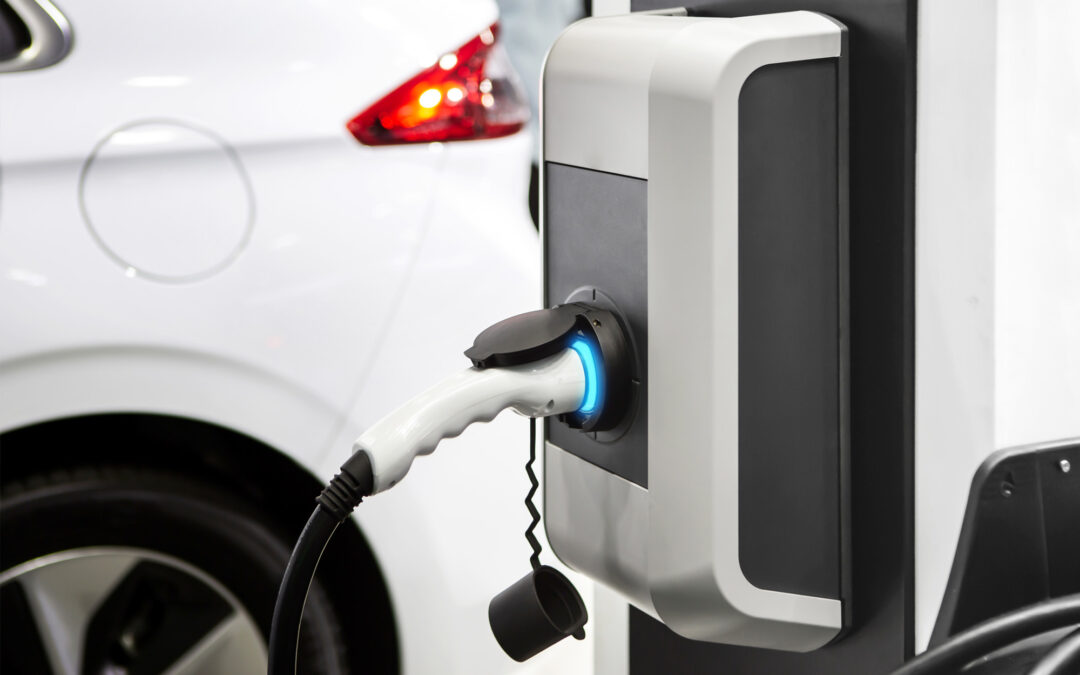In recent years, there has been a significant shift towards electric vehicles (EVs) among younger generations. As this trend continues, college campuses have a unique opportunity to support their environmentally conscious students and staff by installing commercial EV chargers.
In this article, we’ll explore the benefits of commercial EV chargers on college campuses and how this technology can enhance your university’s reputation as an environmentally friendly institution.
Embracing the EV Revolution
Transportation is evolving, and young adults are at the forefront of this change. With concerns about climate change and sustainability, more students are turning to EVs as their preferred mode of transportation. The appeal of EVs lies not only in their reduced carbon footprint, but also in their lower operating costs, government incentives, and technological advancements.
Meeting the Needs of Students & Staff
As the demand for EVs among students and staff continues to grow, college campuses must adapt to meet their evolving transportation needs. Installing commercial EV chargers on campus provides a convenient and accessible charging solution for EV owners, eliminating the hassle of finding charging stations off-campus or relying solely on home charging.
Enhancing Campus Sustainability
By installing EV chargers on campus, colleges demonstrate their commitment to sustainability and environmental stewardship. Encouraging the adoption of EVs helps reduce greenhouse gas emissions and air pollution, contributing to a cleaner and healthier campus environment. Promoting sustainable transportation aligns with many students’ and staff members’ values and priorities, fostering a culture of environmental responsibility within the university.
Attracting & Retaining Students
Colleges must differentiate themselves in a competitive higher education landscape to attract and retain students. Offering amenities like EV chargers on campus can be a compelling factor for prospective students, especially those who prioritize sustainability and eco-conscious living. By investing in EV infrastructure, colleges signal their commitment to innovation, technology, and environmental leadership, enhancing their appeal to environmentally conscious students.
Supporting Student & Staff Well-Being
Access to EV chargers on campus contributes to overall well-being and convenience. EV owners can charge their vehicles while attending classes, working, or participating in campus activities, ensuring peace of mind. By promoting sustainable transportation options, colleges support initiatives that promote physical activity, reduce traffic congestion, and improve air quality, creating a healthier and more vibrant campus environment for everyone.
Demonstrating Institutional Leadership
Colleges that embrace EV technology and invest in charging infrastructure demonstrate institutional leadership and forward thinking. By staying ahead of the curve and adopting emerging technologies, colleges position themselves as leaders in sustainability, innovation, and environmental responsibility. This benefits the university’s reputation and fosters partnerships with industry leaders, government agencies, and community stakeholders who share similar values and priorities.
Let the experts at Lonestar Integrated Solutions plan your next EV charging station today.
Key Considerations Before Installing Commercial EV Chargers on Campuses
While the benefits of EV adoption are numerous, there are several considerations that institutions must take into account before implementing such infrastructure.
Understanding EV Adoption Trends
Colleges must first assess electric vehicle demand and potential uptake among students, faculty, and staff. Analyzing EV adoption trends and preferences within the university can provide valuable insights into the level of demand for charging infrastructure. Surveys, focus groups, and stakeholder engagement can gauge interest and inform the scope of EV charger installations.
Assessing Campus Infrastructure & Resources
Installing commercial EV chargers requires careful consideration of campus infrastructure and resources. Factors like electrical capacity, parking availability, site suitability, and zoning regulations must be evaluated to ensure compatibility with EV charger installations. Conducting a thorough assessment of campus infrastructure and collaborating with relevant departments, such as facilities management and transportation, can help you identify challenges and opportunities for integrating EV chargers.
Choosing the Right Charging Technology
Colleges must carefully evaluate their options when selecting charging technology for installation on campus. Considerations like charging speed, compatibility with different EV models, scalability, and user experience should guide decision-making. Options range from Level 1 chargers that provide basic charging capabilities to Level 3 DC fast chargers that offer rapid charging for EVs with compatible battery systems.
Addressing Funding & Financing
Funding EV charger installations can be a significant consideration for colleges, particularly for institutions with limited financial resources. While the initial investment may seem daunting, colleges can explore various funding and financing options to support EV charger installations. Grants, incentives, partnerships with government agencies or private organizations, and student fees are potential sources of funding that colleges can use to offset installation costs and make EV chargers financially feasible.
Developing Charging Infrastructure Policies
Establishing clear policies for EV charging infrastructure is essential for fair and efficient usage. Charging policies should address priorities, scheduling, billing, user eligibility, and enforcement.
Providing Education & Outreach
Educating the university about EVs and the benefits of charging infrastructure is critical for fostering awareness and adoption. Colleges should develop outreach and educational initiatives to inform students and staff about EV technology, charging options, incentives, and sustainability benefits. Workshops, informational sessions, signage, and online resources can help demystify EVs and encourage campus stakeholders to embrace electric mobility.
Integrating Sustainability Goals
Integrating EV charger installations into broader sustainability initiatives is key for colleges committed to reducing their carbon footprint and promoting environmental stewardship. EV chargers can symbolize the institution’s commitment to sustainability, innovation, and climate action.
Install Commercial EV Chargers on Your College Campus With Lonestar
Seamlessly install commercial EV chargers on your college campus with Lonestar. We assess your needs, select the right technology, and implement sustainable charging solutions. Trust us to power your campus into the future of electric mobility.

